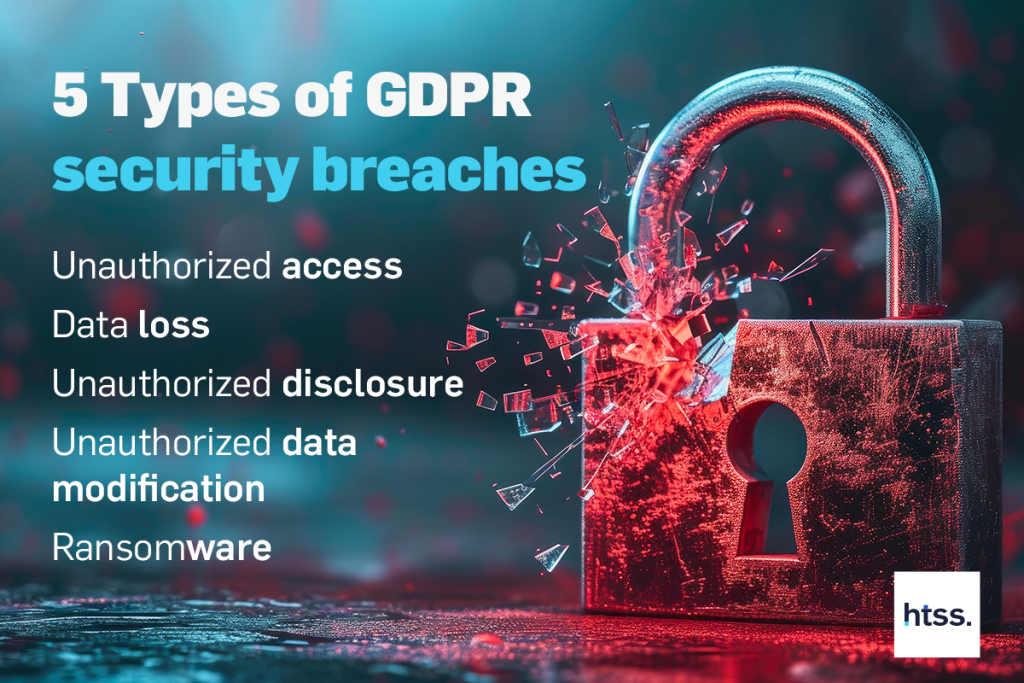2024-06-06
5 Types of GDPR security breaches and how they can affect your online business
GDPR, or the General Data Protection Regulation, has introduced strict standards for protecting the personal data of EU citizens. A GDPR security breach can have serious consequences for your online business. In this article, we will explore what a GDPR security breach is, common types of breaches, and how to effectively prevent them.
What is a GDPR security breach?
A GDPR security breach refers to any security incident that leads to the compromise of personal data. This can include unauthorized access, loss, destruction, or disclosure of data. According to GDPR, companies must report these breaches to the relevant authorities within 72 hours and, in some cases, inform the affected individuals.

Types of GDPR security breaches and associated risks
Identifying common types of GDPR security breaches is essential for implementing adequate preventive measures. Here are five types of GDPR security breaches that can affect your online business and the associated risks:
1. Unauthorized access
Unauthorized access occurs when unauthorized individuals manage to access personal data handled by your business. This type of GDPR security breach can lead to the theft of sensitive information, such as financial or personal data, which can damage the business’s reputation and result in significant financial losses.
2. Data loss
Data loss can occur due to human errors, technical failures, or cyber-attacks. When data is lost and there are no backups, companies can face difficulties in daily operations and lose customer trust.
3. Unauthorized disclosure
Unauthorized disclosure happens when personal data is made public or shared without the consent of the individuals involved. This type of GDPR security breach can lead to privacy violations and costly legal disputes.
4. Unauthorized data modification
Unauthorized data modification refers to altering information without permission. This can affect the accuracy of data and lead to poor business decisions, negatively impacting operations and client relationships.
5. Ransomware
Ransomware is a type of malware that encrypts data and demands a ransom for decryption. Such a GDPR security breach can completely paralyze the business until the situation is resolved and may involve substantial costs for data recovery.
How to prevent GDPR security breaches
Preventing GDPR security breaches requires a proactive and well-structured approach. Here are some essential measures:
- Implementing technical and organizational measures: ensure your systems are protected through encryption, firewalls, and up-to-date antivirus solutions. Additionally, implementing clear access and internal control policies can limit the risk of breaches.
- Employee training: educate your employees about the importance of data protection and how to recognize and avoid potential security threats.
- Conducting regular audits: perform regular audits of security systems to identify and address vulnerabilities before they can be exploited.
- Implementing backup policies: ensure data is periodically saved and that there are plans for data recovery in case of loss or cyber-attacks.
- Monitoring and incident detection: use continuous monitoring solutions to detect and respond quickly to any security incidents.
By adopting these measures, your business can significantly reduce the risk of being affected by a GDPR security breach.
Contact us to learn how we can help your business stay safe and compliant with the NIS directive.




